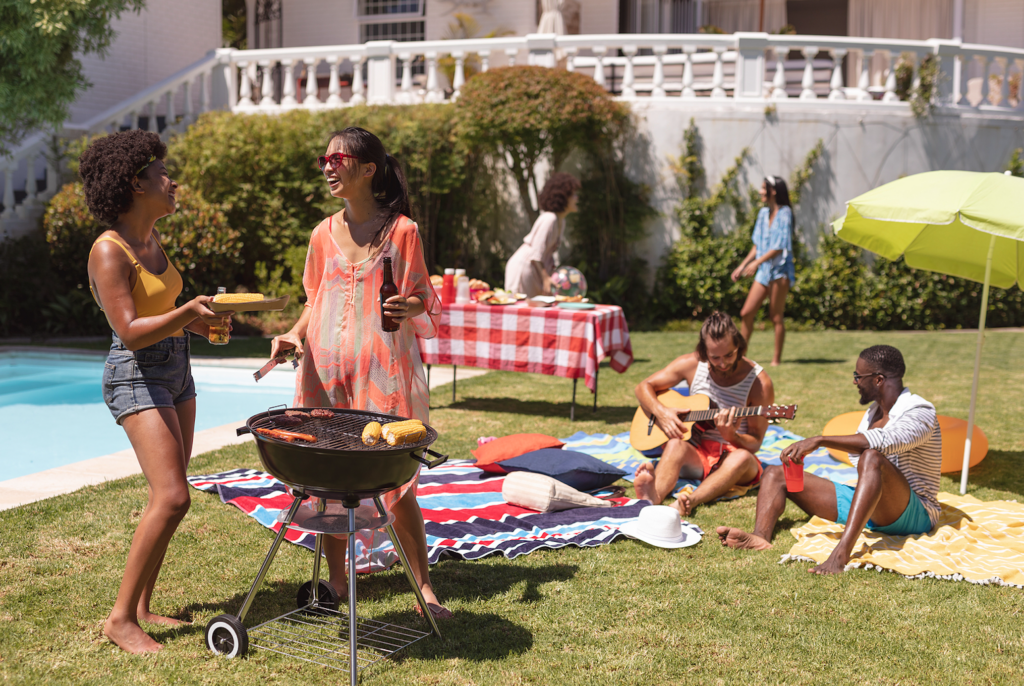
I know I’m not the only one feeling socially awkward as I crawl out of my COVID isolation bubble and encounter other human beings for the first time since the beginning of the pandemic. It feels good to be back around whole groups of people, but it’s also strange.
I desperately want to be with people, but then, after about 10 minutes of chitchat, I want to run back to my couch.
Luckily, I’ve got a few strategies in my back pocket to help me get off that couch and return to normal(ish) human interactions, thanks to a little life experience.
Shortly after undergrad, I sank into a bout of depression that lasted for nearly three years, and I spent most of that time alone on my couch or in bed. My closest friends had moved away, and a new job and school schedule made me feel even more lonely and isolated.
After a lot of hard work, therapy, and medication adjustments, the depressive fog started to lift. I miraculously wanted to be around people again! I jumped into busy weekends and adventures with my church’s young adult group, only to end up exhausted and irritable. I worried that I was still depressed, or worse, that I was permanently broken. What was wrong with me?
Absolutely nothing.
It turns out that social skills and stamina are like a muscle — after an extended period of isolation, I needed rest and time to build up my endurance for big parties or back-to-back events.
And it’s not just me! Isolation can literally change your brain structure and function. Prisoners in solitary confinement and soldiers on long deployments often suffer the most extreme social isolation, but scientists have also studied the effects of isolation on astronauts and scientists in Antarctica. In other words, whether your isolation is a result of depression, a pandemic, or a long-term space mission, it’s normal to struggle when you’re re-entering the world!
After my major depressive episode, I needed patience and a few tips from my therapist to get back to being a social butterfly. I’m using those same strategies again to avoid burnout as I re-enter the world after COVID.
I’m starting with only a few people IRL
It’s not just about avoiding large crowds — I’m focusing on reengaging one or two friendships in-person at first. Friends require time and energy, so I don’t want to overcommit. When athletes become fatigued, they’re more prone to injury. Similarly, if I’m exhausted from socializing with too many people at once, I’ll end up bailing on friends or hurting their feelings with my grumpiness.
I recognize my social stamina won’t be the same as it was before the pandemic
Before the pandemic, regular time with friends was an important part of staying happy, healthy, and relaxed. But when I plan back-to-back socializing at pre-COVID levels, I end up tired and irritable.
This is because my social threshold is lower after so much isolation. Even on days or weeks when I feel energized and ready for people, I try to under-schedule and build in plenty of time for recharging. On the other hand, if I haven’t spent time with friends all week, that’s a sign that I’m withdrawing too much and should go out to strengthen those social “muscles.”
I joined a weekly exercise class
My yoga class creates a structured physical activity with minimal human interaction. I can exchange a little small talk, or not — depending on the day. Either way, it feels nice to be in the same room as other people! Regular exercise is good for my mind and body anyway, and the endorphins are an added bonus.
I suggest picking a group activity that you loved when you were a kid, and looking for a grown-up version of that. It could be an official adult soccer league, or you could find a more low-pressure group that meets at a park on Thursday evenings for pick-up games. Whatever you decide, you can be with human beings without using up your social reserves for the week.
I refuse to compare myself to other people
We all have different circumstances, past experiences, and brain chemistry, so it makes sense that some of us will recover more quickly than others — and that’s okay! I have a friend who is already throwing parties and enjoying group vacations, and I’m not ready for those things yet. It sounds cheesy, but I’m still proud of myself for doing the best I can.
I’m honest when I’m struggling
Everyone is figuring out the new normal and recovering from social isolation. When I’m overwhelmed, there’s a good chance the people around me are feeling the same way. Sharing my own struggles can be an invitation for my friends to share what they’re going through, too.
A few days ago I told a friend how I’ve been having a hard time, and she responded by admitting that she’d had a complete breakdown the night before. My honesty opened the door for my friend to be honest in return, and created an opportunity for us to support each other at a deeper level.